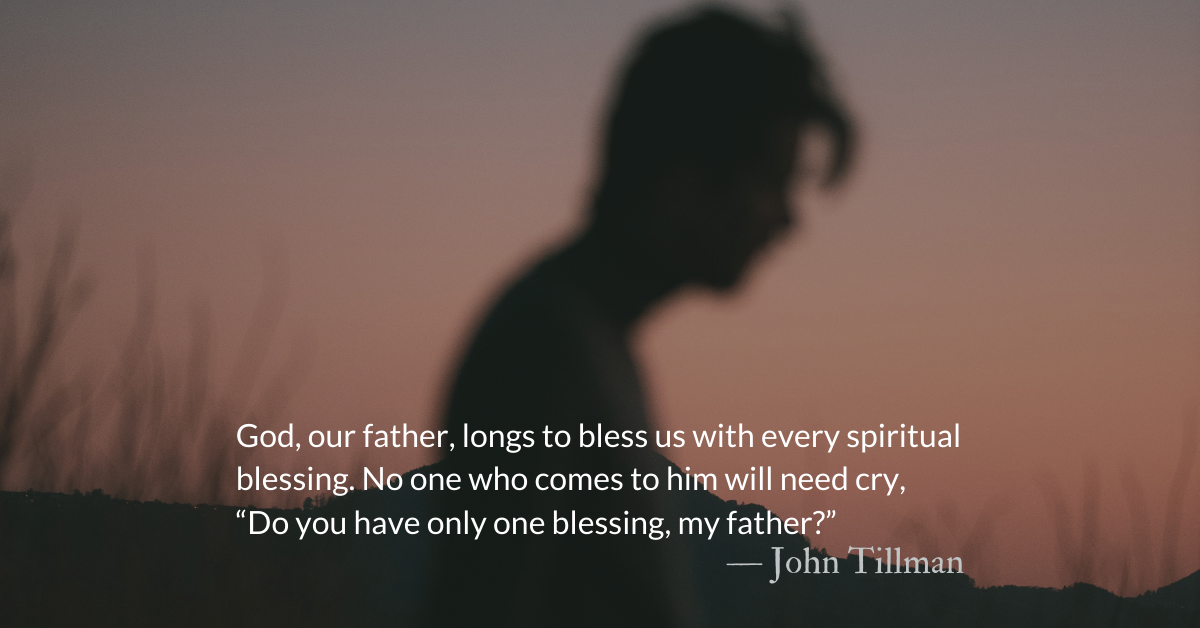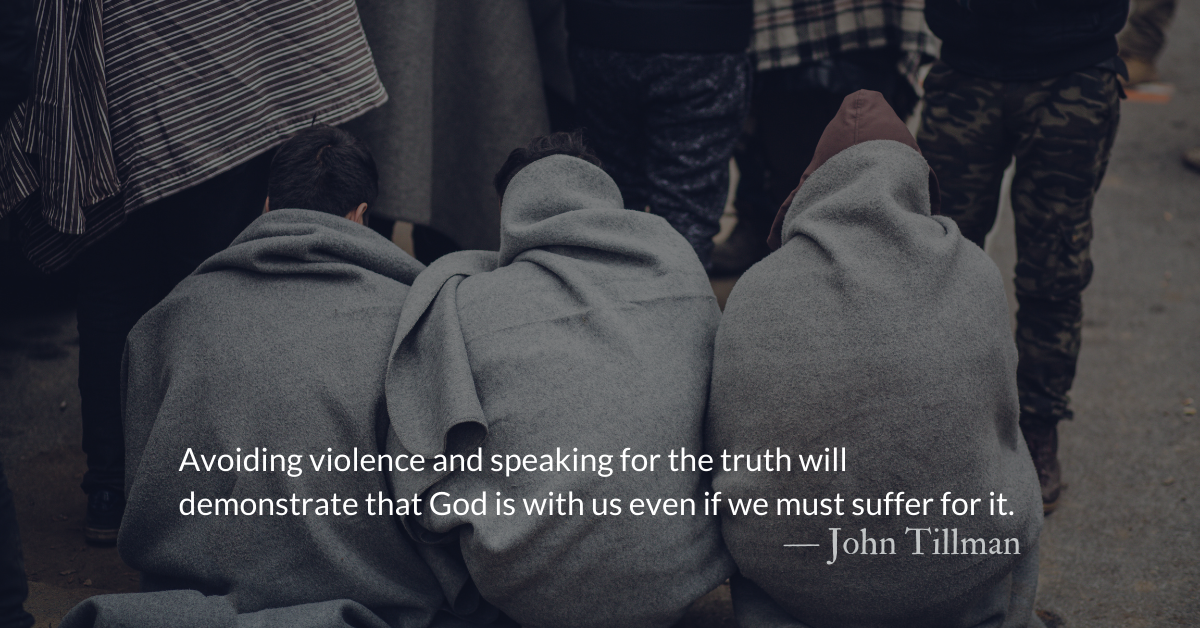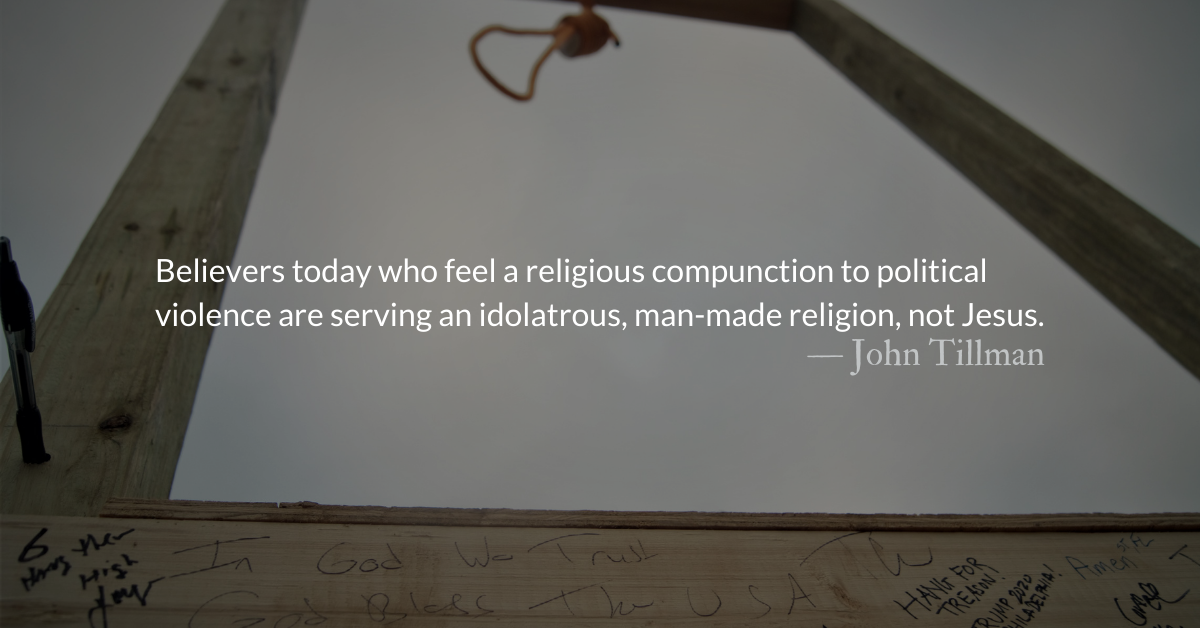Scripture Focus: Genesis 28.16-17
16 When Jacob awoke from his sleep, he thought, “Surely the Lord is in this place, and I was not aware of it.” 17 He was afraid and said, “How awesome is this place! This is none other than the house of God; this is the gate of heaven.”
Reflection: When Liars Meet The Truth
By John Tillman
Rebekah is sometimes overlooked in the story of Jacob and Esau.
Early in her pregnancy, a disturbed Rebekah consulted God, who revealed to her the prophesied destinies of her sons. (Genesis 25.21-26) Perhaps, this is why she subverts the process of inheritance to fulfill what she heard from God. Her dishonest methods are used by God to overturn the cultural traditions.
After the con, to save Jacob’s life, Rebekah masterfully uses an unrelated family crisis to invent a reason to send Jacob away to Laban. His trip has a cover story, but Jacob is undeniably fleeing for his life.
Perhaps Rebekah learned deception from her brother, Laban, the master con-artist of the Bible. After all, they both pass off one sibling as another. (Genesis 29.21-28)
Jacob’s flight to Laban would save his life, but was also used by God to humble him. Jacob was suffering for his sins through the consequences of his actions. On the run, as an outcast, Jacob is rich on paper, but penniless by practical means. He’s promised the land he is laying on, but possessed only the dust adhered to his clothes and skin.
With Laban, Jacob would be schooled in what it feels like to be tricked, cheated, and deceived by family. Yet, even on the run, Jacob finds God is with him. The liar meets the truth. As alone as Jacob was, and as outcast and alone as we may feel, “God is in this place” even if we don’t realize it.
Jacob is an example of our position in this world. We are children of the promise now, but we do not hold the promise yet. Jacob’s life shows us that even sinful, insecure, fearful people can be used by God.
Jacob shows us that God does not always pick the mighty, overly-masculine Esaus of the world. Those considered “less manly” or just “less than” by their culture are still called and used by God.
Whatever situation we find ourselves in or however the world views us, we can be assured that God’s presence is near. The distance we may feel from God is usually one of our own making.
When we humble ourselves and come to him, he will show himself to us and enter our lives to make us into a blessing for others. Even those rightly called “Jacob” can be changed to be called “Israel.”
Divine Hours Prayer: The Call to Prayer
Let us make a vow to the Lord our God and keep it; let all around him bring gifts to him who is worthy to be feared. — Psalm 76.11
– Divine Hours prayers from The Divine Hours: Prayers for Autumn and Wintertime by Phyllis Tickle
Today’s Readings
Genesis 28 (Listen – 3:17)
Matthew 27 (Listen – 8:45)
Read more about The Predicament of Self-Obsession
We are supposed to find ourselves in Jacob’s story—anxious and myopic, insecure in our blessing—but we are not supposed to be content with this.
https://theparkforum.org/843-acres/the-predicament-of-self-obsession/
Read more about Faith of the Flawed
We do not have the time or space to recount all the shortcomings of these very human and flawed “heroes” of faith.











